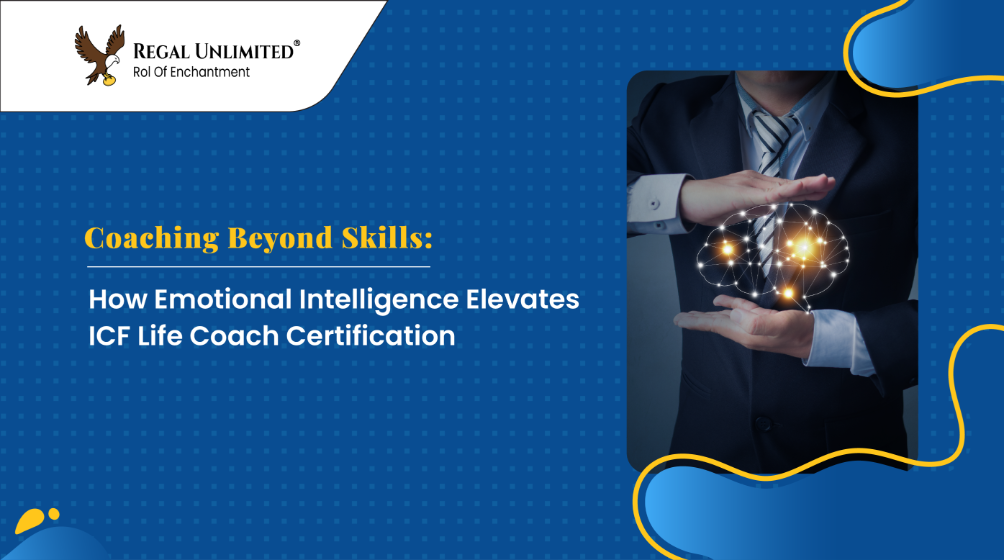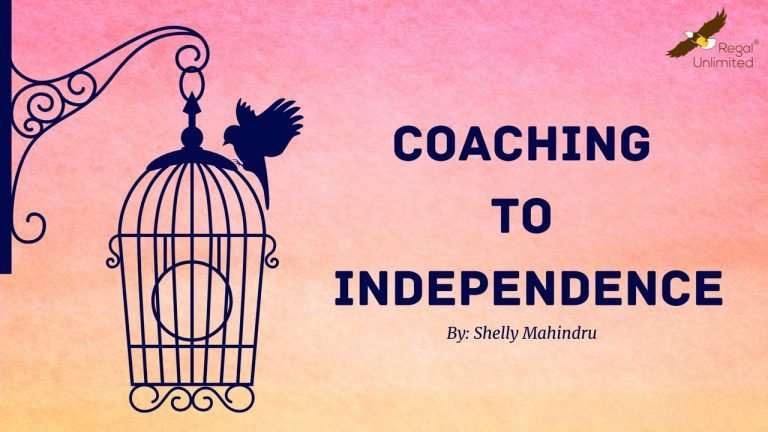The International Coach Federation (ICF) sets high standards for coaching excellence, and achieving an ICF life coach certification is a prestigious accomplishment. However, what sets apart an exceptional ICF-certified life coach from the rest? It’s not just about acquiring the necessary skills and knowledge; it’s about harnessing the power of emotional intelligence.
In this blog post, we will explore the profound impact of emotional intelligence on coaching effectiveness and, by extension, on the journey toward ICF life coach certification. We’ll delve into the significance of emotional intelligence in coaching, its role in building meaningful client relationships, and how it influences the coaching process.
Essence of Emotional Intelligence in Coaching
Before we dive into its impact on coaching, let’s grasp the concept of emotional intelligence. Emotional intelligence, often called Emotional Quotient (EQ), encompasses recognising, understanding, managing, and utilising emotions effectively. It involves perceiving one’s emotions, empathising with others, and managing emotions to navigate various social situations.
Emotional intelligence is a multifaceted trait pivotal to personal and professional success. It comprises several key components: self-awareness, self-regulation, social awareness, and relationship management. When it comes to coaching, each of these components comes into play.
Emotional Intelligence and ICF Life Coach Certification
The journey to becoming an ICF-certified life coach is marked by rigorous training and assessment, focusing on theoretical knowledge and practical coaching skills. While these skills are undoubtedly vital, emotional intelligence can make all the difference in coaching effectiveness.
A high level of emotional intelligence is often a prerequisite for individuals seeking ICF life coach certification. It is because coaching isn’t just about imparting knowledge or advice; it’s about guiding clients on a journey of self-discovery and personal growth. Coaches need to be attuned to their own emotions and those of their clients to facilitate this process effectively.
Nurturing Self-Awareness in ICF Life Coach Certification
One of the core components of emotional intelligence is self-awareness, which involves recognising and understanding one’s emotions. In the coaching context, self-awareness is crucial for coaches to identify their biases, triggers, and emotional reactions when working with clients. An ICF-certified life coach with a high level of self-awareness is better equipped to maintain objectivity and empathy during coaching sessions.
Furthermore, self-awareness allows coaches to identify their strengths and weaknesses, continually improving their coaching techniques and adapting to each client’s unique needs. Aspiring coaches on the path to ICF life coach certification must cultivate self-awareness as a foundational skill.
Emotion Regulation: A Pillar of Effective Coaching
Another integral aspect of emotional intelligence is emotion regulation, which involves managing and controlling one’s emotions. In the world of coaching, this skill is indispensable. Clients may bring a range of emotions to their coaching sessions, from frustration and fear to excitement and hope. An ICF-certified life coach must be adept at regulating their emotions to create a safe and supportive space for clients.
Emotion regulation also plays a role in handling challenging coaching situations. By maintaining emotional composure, coaches can respond thoughtfully rather than react impulsively, ensuring that the coaching process remains productive and beneficial for clients. It’s a skill that elevates the effectiveness of ICF-certified life coaches.
The Role of Emotional Intelligence in Building Meaningful Client Relationships
Building strong and meaningful relationships with clients is fundamental to successful coaching. Emotional intelligence is the linchpin that enables coaches to connect with their clients deeper, fostering trust, openness, and collaboration.
1. Empathy and Connection
Empathy, a key component of emotional intelligence, allows coaches to step into their client’s shoes and understand their perspectives and feelings. When clients feel heard and understood, they are more likely to open up and engage in the coaching process wholeheartedly.
2. Effective Communication
Effective communication is at the heart of coaching, and emotional intelligence enhances a coach’s ability to communicate with clarity, sensitivity, and authenticity. Coaches with high emotional intelligence can adapt their communication style to match the client’s preferences and emotional state, ensuring that information is conveyed effectively.
3. Trust and Rapport
Trust is the foundation of any successful coaching relationship. Clients must trust their coaches to guide them on their personal and professional journeys. Coaches with emotional intelligence are skilled at building trust and rapport by demonstrating authenticity, reliability, and genuine concern for their client’s well-being.
Emotional Intelligence and the Coaching Process
The coaching process itself is greatly influenced by the coach’s level of emotional intelligence. Here’s how emotional intelligence impacts various stages of coaching:
1. Goal Setting
During the initial stages of coaching, coaches work with clients to set clear and achievable goals. Emotional intelligence comes into play as coaches help clients identify goals that are aligned with their values, passions, and emotions. This alignment ensures that clients are motivated and committed to their goals throughout the coaching journey.
2. Exploring and Reflecting
Coaching often involves deep exploration and reflection. Coaches with emotional intelligence excel in asking probing questions, actively listening, and creating a safe space for clients to explore their thoughts and emotions. This process of self-discovery is essential for personal growth and transformation.
3. Action Planning and Accountability
Once goals are set and explored, coaches help clients create action plans to move forward. Emotional intelligence aids coaches in understanding the emotional barriers that may impede progress and devise strategies to overcome them. Coaches also hold clients accountable with empathy and support, ensuring they stay on track toward their goals.
Conclusion
Aspiring coaches on the path to ICF life coach certification should prioritise the development of their emotional intelligence alongside their coaching skills. Doing so increases their effectiveness as coaches and enriches their clients’ lives by providing transformative coaching experiences.
Emotional intelligence is the secret sauce that elevates coaching from a skill-based profession to a truly transformative journey. Embracing emotional intelligence as an integral part of ICF life coach certification ensures that coaches can inspire, empower, and guide their clients toward success and fulfilment.
At Regal Unlimited, we recognise the importance of emotional intelligence in coaching to enhance the outcomes of our programs and raise versatile coaches. Please write to us at info@regalunlimited.com to connect with our coaching experts.
Emotional intelligence is essential for ICF life coach certification success, enriching client relationships, and optimising coaching effectiveness.





